Teresa Gonçalves
GuideBP: Guiding Backpropagation Through Weaker Pathways of Parallel Logits
Apr 23, 2021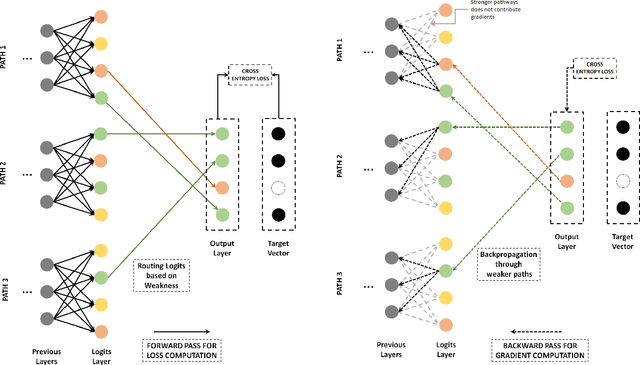
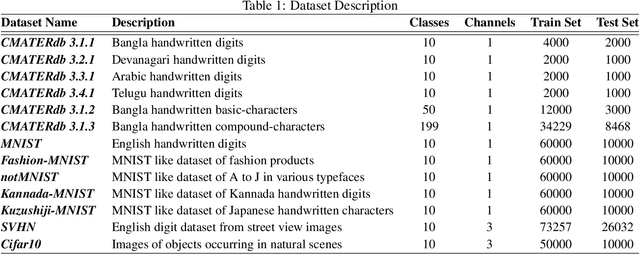

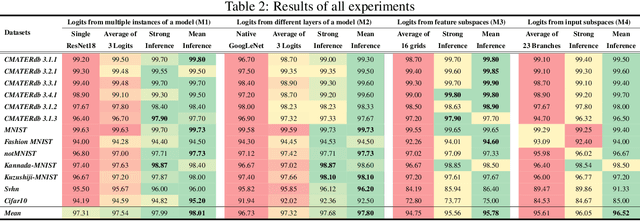
Abstract:Convolutional neural networks often generate multiple logits and use simple techniques like addition or averaging for loss computation. But this allows gradients to be distributed equally among all paths. The proposed approach guides the gradients of backpropagation along weakest concept representations. A weakness scores defines the class specific performance of individual pathways which is then used to create a logit that would guide gradients along the weakest pathways. The proposed approach has been shown to perform better than traditional column merging techniques and can be used in several application scenarios. Not only can the proposed model be used as an efficient technique for training multiple instances of a model parallely, but also CNNs with multiple output branches have been shown to perform better with the proposed upgrade. Various experiments establish the flexibility of the learning technique which is simple yet effective in various multi-objective scenarios both empirically and statistically.
From Textual Information Sources to Linked Data in the Agatha Project
Sep 03, 2019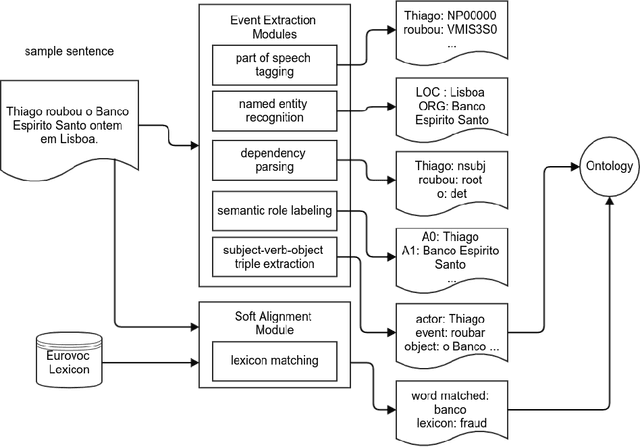
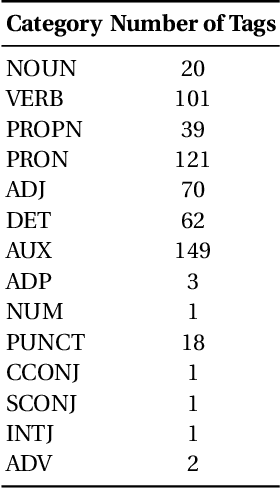
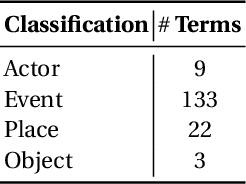
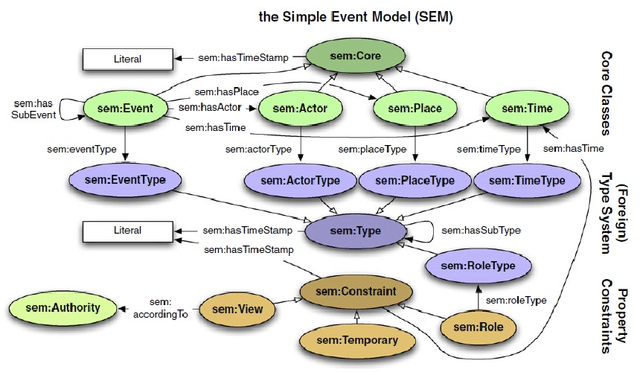
Abstract:Automatic reasoning about textual information is a challenging task in modern Natural Language Processing (NLP) systems. In this work we describe our proposal for representing and reasoning about Portuguese documents by means of Linked Data like ontologies and thesauri. Our approach resorts to a specialized pipeline of natural language processing (part-of-speech tagger, named entity recognition, semantic role labeling) to populate an ontology for the domain of criminal investigations. The provided architecture and ontology are language independent. Although some of the NLP modules are language dependent, they can be built using adequate AI methodologies.
 Add to Chrome
Add to Chrome Add to Firefox
Add to Firefox Add to Edge
Add to Edge